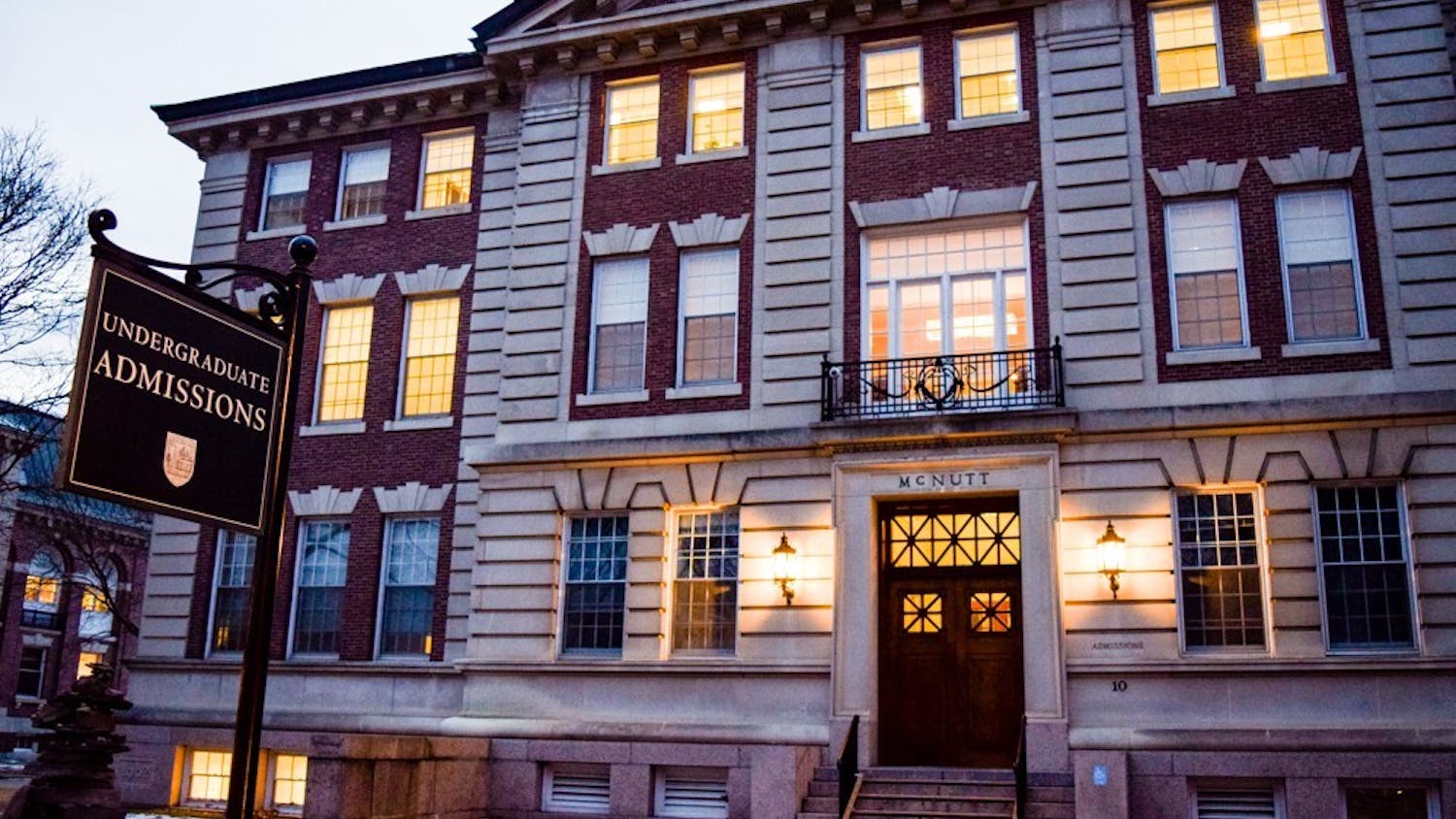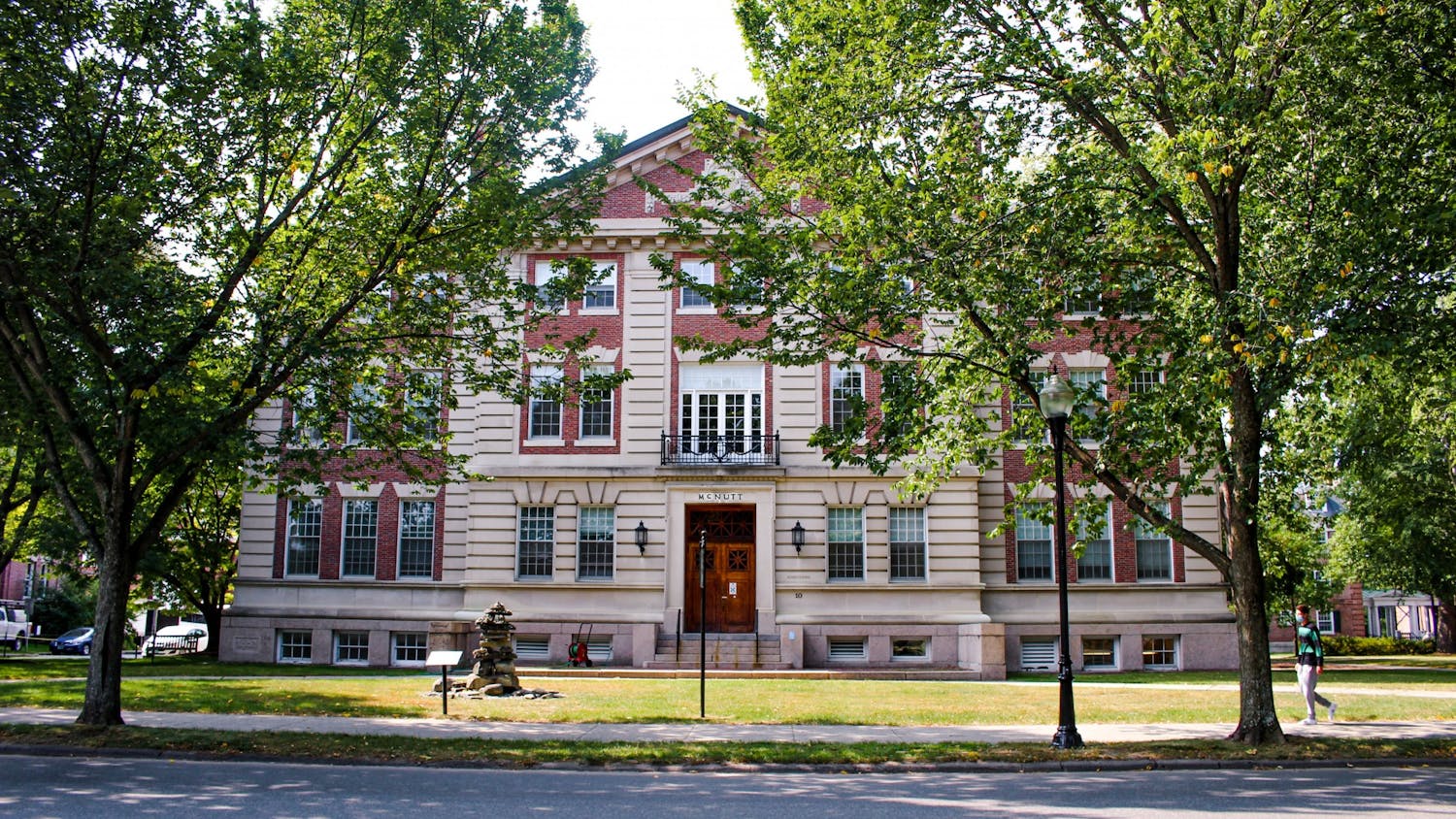While the Office of Community Standards has seen the “whole gamut” of routine violations this year, the number of students involved in each report has increased, according to office’s director Katharine Strong. Meanwhile, the office has noticed a downward trend in behavioral misconduct — such as alcohol violations — because fewer students populate campus due to reduced capacity, Strong said.
According to data from the 2018-2019 Committee on Standards report — the most recent one available — the 10-year annual average for academic honor principle cases is 31. This average does not include an outlier event from the fall of 2014 in which 64 students were charged with academic honor violations.
Strong declined to comment on this year’s exact numbers, noting that they have yet to be published. She added that she is reluctant to assign a specific reason for the increase before she can review the data, but added that the shift to online learning has led to a heightened awareness of the possibilities for misconduct.
“You know when you learn a new word? And you suddenly see it everywhere?” Strong said, referring to academic dishonesty in online learning. “If you change people’s focus, they may see more of it, but it doesn’t mean it wasn’t there before.”
Over the summer of 2020, Strong reported that the number of academic dishonesty violations the preceding spring — the first term impacted by the pandemic — fell within the normal range.
Strong said that her office runs their annual report from June 15 the previous year to June 15 the following year, but said that she has had “very little time” to analyze previous cases and produce the annual report which covers the terms since the 2019 report. She expects the 2019-2020 report to come out sometime in late fall 2021 or into 2022.
Strong said that at the beginning of the pandemic, she did not believe rates of academic dishonesty would necessarily increase with online learning. She noted that reports coming across her desk recently have been similar to pre-pandemic violations but have involved more students than before.
“We receive reports that feel familiar, but have more students involved than we are used to seeing,” she said. “There may be something about collaborating on an exam — [a type of incident that] is common — but it is not usual to have five people on that report.”
COSC 10, “Problem Solving via Object-Oriented Programming” teaching assistant Dylan Bienstock ’23 said that it’s “hard to catch” instances of academic dishonesty as he grades assignments in the 120-person course.
Bienstock said the computer science department has ways of identifying dishonest work, including algorithms that can run a student’s code to compare it to both other students’ answers and internet sources, though he does not use these methods as a TA.
“We always talk about keeping a watchful eye and checking if the answer submitted is synonymous to the answer key,” he said.
Bienstock said he and other TAs in the course collaborate over Zoom to compare “weird answers” if needed when grading midterms. Bienstock added that he has uncovered irregularities while grading on multiple occasions. The next step, he said, is to pass the case to the professor.
“One thing the professor stresses is that it is not the student [TA]’s job to handle a fellow student’s cheating situation,” he said.
Economics professor Diego Ramos-Toro said that in his introductory economics course, ECON 1, “The Price System,” which has 40 students, he has incorporated more open-ended assignments into student’s grades to stave off academic dishonesty. He added that the key to preventing academic dishonesty is to design examinations and assignments so that “those who do things which aren’t right don’t have an advantage.”
“You will never find something out there [online] which will provide the answer to you,” he said. “[My] exams include questions which I never provide answers to in my lectures.”
Ramos-Toro said his approach is to provide his students with the tools they need to succeed on exams, and then to test students on whether they can take the necessary “extra steps” to prove their understanding of economic concepts. He noted that mutual trust is crucial, and his online exams have been open-book and open-note, allowing students to apply their knowledge with the resources at their disposal.
“The extent of academic dishonesty is limited to a handful of students, at most,” he said, adding that most students are “incredibly honest and hardworking.”
Bienstock said online exams have provided avenues for academic misconduct, describing it as a “really big problem” and adding that he has heard anecdotally that COSC 10 students may have sent around questions while exams were in progress.
According to Bienstock, before the pandemic, COSC 10 midterms would be held synchronously in lecture halls, and students would have two hours to complete their exams. Now, he said, exams are open for 24 hours online, hypothetically allowing students to take screenshots and forward questions to others in the class.
“That’s the bigger issue,” Bienstock said about the longer tests. “Probably more [so] than copying solutions word for word.”
“It’s disappointing,” he said. “COSC 10 was the hardest class I have ever taken. I was excited by what I got out of it; the academic rigor has been tainted on Zoom.”
Other strategies Ramos-Toro said he employs to ensure honesty in his courses include assigning group projects, which count for 30% of his class’s final grade, and composing exam questions for which repetition in responses would be “obvious.”
“Students are honest,” he said. “If you do groups of four, at least three will be honest and responsible; if there is one who is not too compliant, the others can make them fall in line.”
Physics professor Yorke Brown takes a slightly different approach in his introductory class, PHYS 004, “General Physics II.” He said his class has no tests, a reflection of his view that grades are “toxic.” Regardless, Brown said he has other “mechanisms” for generating scores.
“We just want to spend time together to grow intellectually,” he said. “When that works and students engage with that ethos, cheating is irrelevant and I don’t have difficulties with people trying to take advantage of each other.”
Brown said it is a “tremendous mistake” to try and raise barriers to cheating and identify it as a crime or punish people for it. Instead, he said a less competitive class leads to an “ethos” of cooperation.
Several years ago, Brown said he taught an introductory astronomy course at Dartmouth with over 150 people. After hearing that some students may have cheated by changing answers after their quizzes were due, Brown said that he asked students to turn their next quiz in immediately to see how the alleged cheating might have influenced performance on the assessment.
“There was this silence in the room,” he said. “But, the score did not change: every paper was filled out and the average score was the same [as previous weeks].”
Brown said that his many years in Boy Scouts, both as a scout and as an adult leader, have instilled the importance of honor in him, and he has heard from students that they appreciate his trusting nature. He added that on a few “rare” occasions, he has reported students for flagrant violations of academic integrity.
“If you want to build trust, you have to trust people,” he said. “If you want to build a culture of honor, you must respect people’s honorability.”




